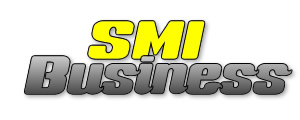Exemption of Import Duty
For companies manufacturing finished products for the export market, full exemption from import duty on direct raw materials are normally granted, provided the raw materials/components are not manufactured locally or, where they are manufactured locally, are not of acceptable quality and price.
Drawback of Import Duty
All duty-paid goods used as parts or ingredients or as packaging materials in the manufacture of other goods which are subsequently exported, are eligible for drawback of import duty in full.
Exemption on Sales Tax and Excise Duty
A drawback of excise duty in respect of parts, ingredients or packaging materials of any goods manufactured may be claimed by the manufacturer if such parts, ingredients or packaging materials on which excise duty has been paid, are used in the manufacture of goods which are exported. All duty-paid goods used as materials for the manufacture of other goods which are subsequently exported, are eligible for drawback of the sales tax in full.
Tariff Protection
In line with the policy of an open economy, the Malaysian Government adopts a trade liberalisation approach and continuously reviews downward the country’s tariff structure. However, in certain cases, tariff protection is considered for deserving infant industries.
In granting tariff protection, the degree of utilisation of domestic raw materials, the level of local value-added, and the level of technology of the industry will be taken into consideration. Applications should be submitted to MIDA.
Tax-Free Income
Government imposed tax on resident as well as non-resident in Malaysia. However, government has also set general guidelines for the resident on areas that are exempted from taxation in Malaysia.
Among some of the criteria as proposed by the government is known as leave passage. One home leave passage out of Malaysia is tax-free that is limited to RM30,000 annually while three trips in a year within Malaysia still remain tax-free without any restriction or boundaries for the employee and immediate family members. Immediate members refer to spouses and children only. Therefore, parents are not subjected to the above exemption. However, it is restricted to the cost of fare and not tax deductible for employer.
Other tax-free areas include medical and dental benefits. That includes benefit for childcare offered to the employee and their immediate family. Fees or honorariums provided for the lecturers and tutors for validation or accreditation of educational programs in higher institutional learning centre are also tax-free provided the services are verified by relevant and in-charge authority and also do not bypass their official responsibilities.
Tax-exempt policy also includes a new system known as single-tier. This system refers to tax exemption for dividends received by the employee. However, government has set a 6-year transitional period beginning from 1st of January 2008 till end of 2013. The execution of the transitional plan enables the resident companies to fully utilize Section 108 whereby individuals will be taxed on the gross dividends but entitled to a credit for imposed tax on the dividends.
However, bear in mind that it does not apply to individuals who received dividends from shares in public listed companies. After the end of the transitional plan, which is beginning of 2014, all companies will practice the single-tier system.
Another tax-free area is whereby new computers received by the employees as provided by employers as well as broadband subscription fees will also be exempted from income tax from year of assessment 2008 till 2010. The proposal is still in consideration.
